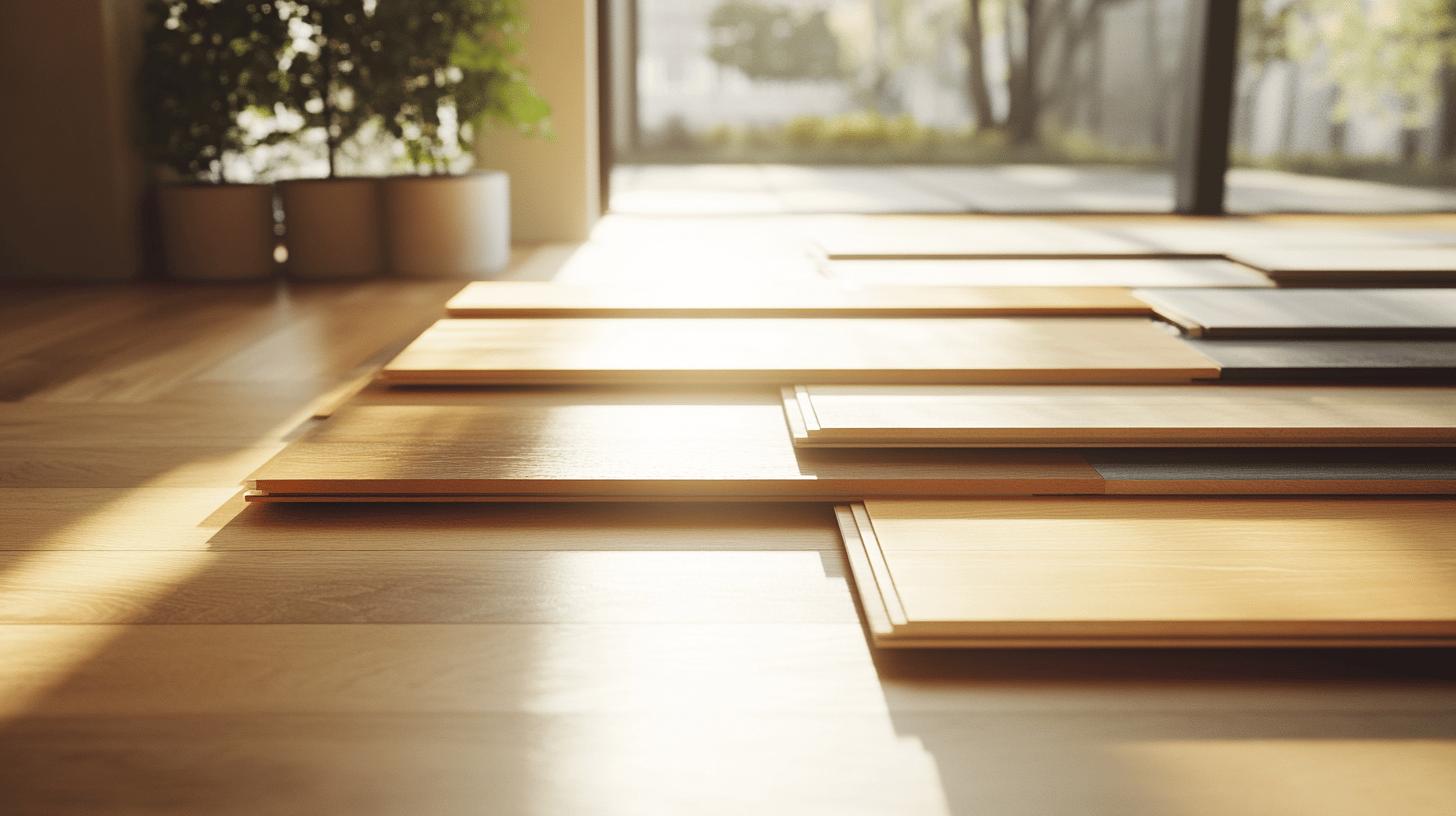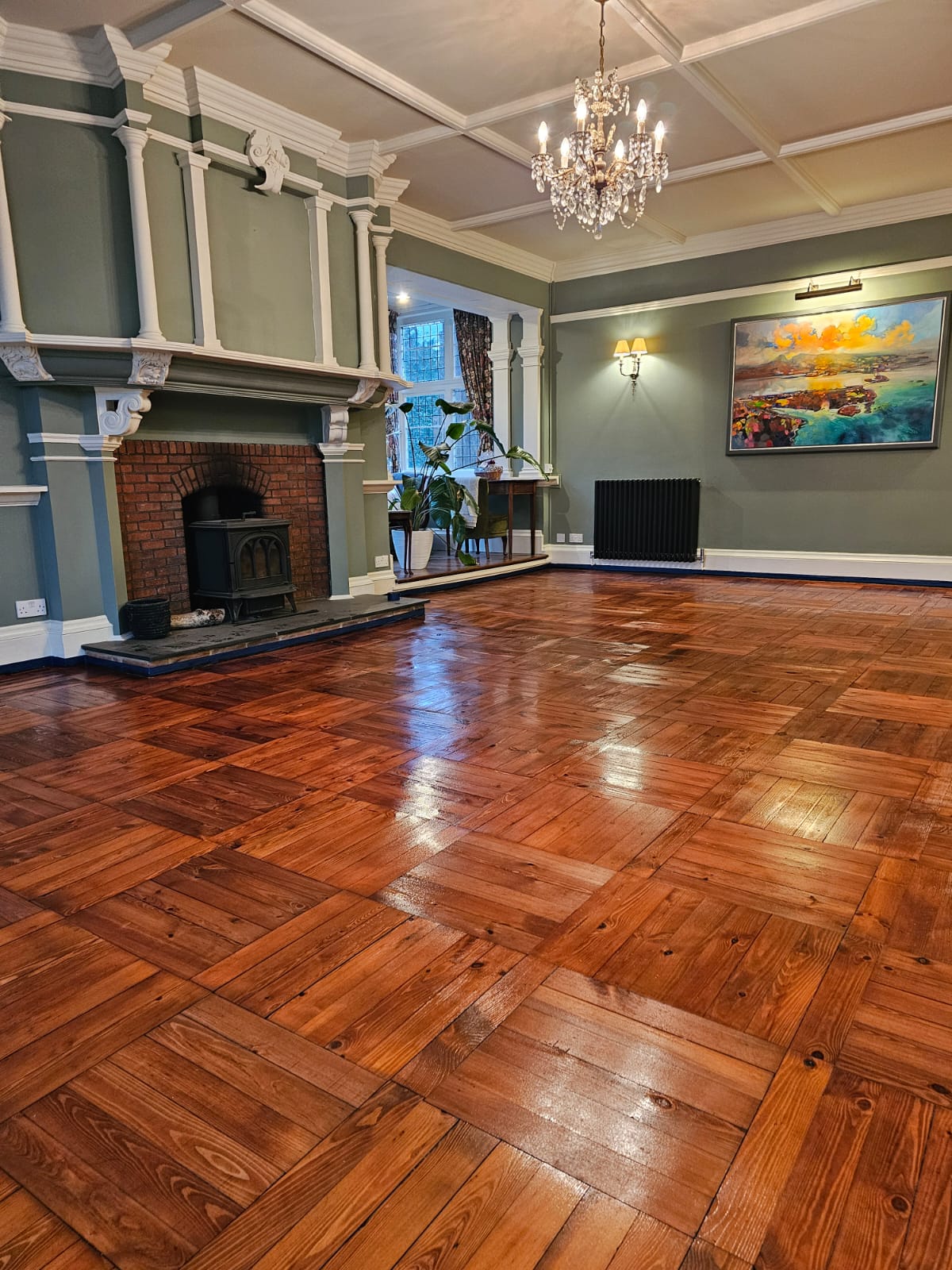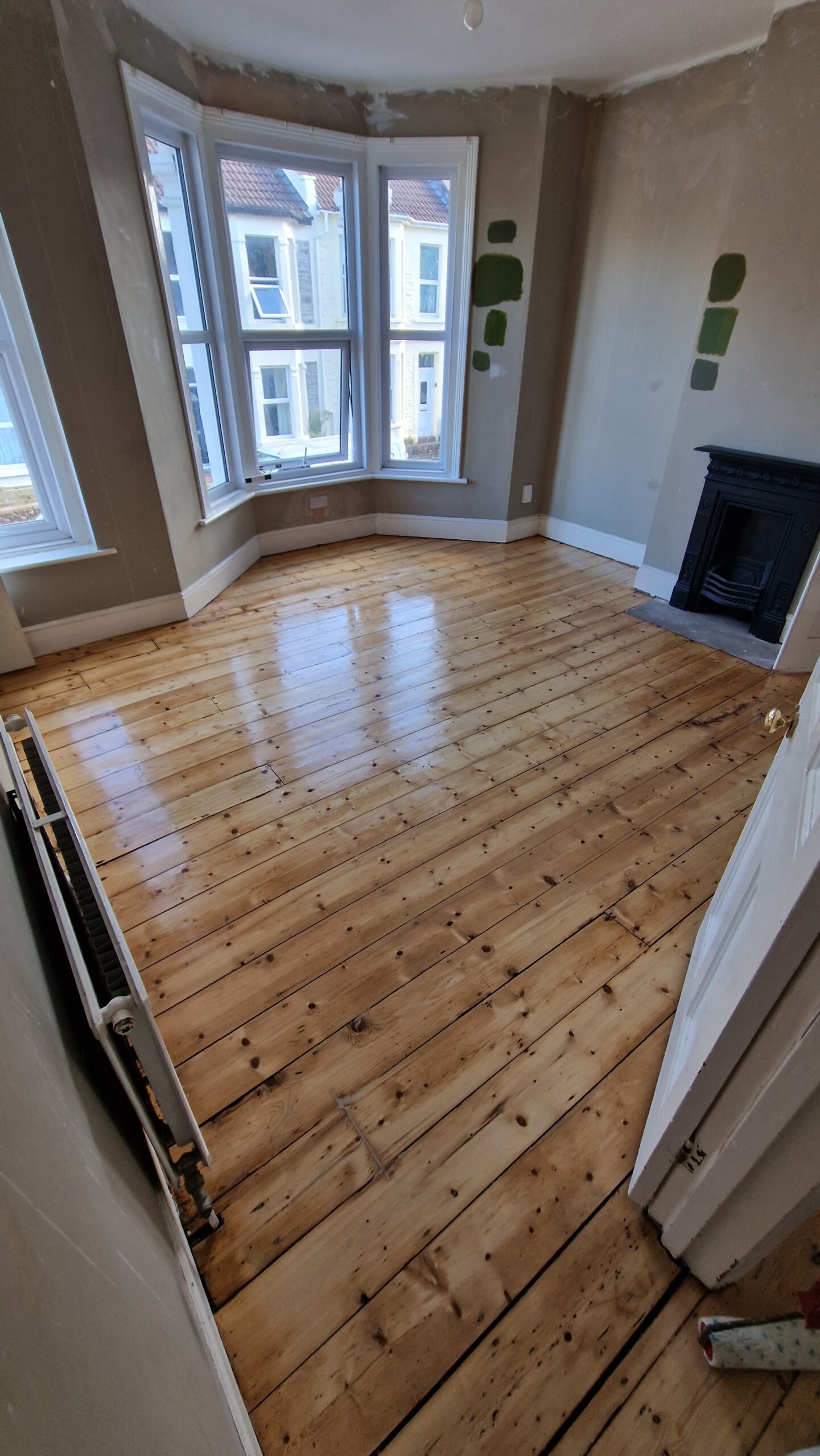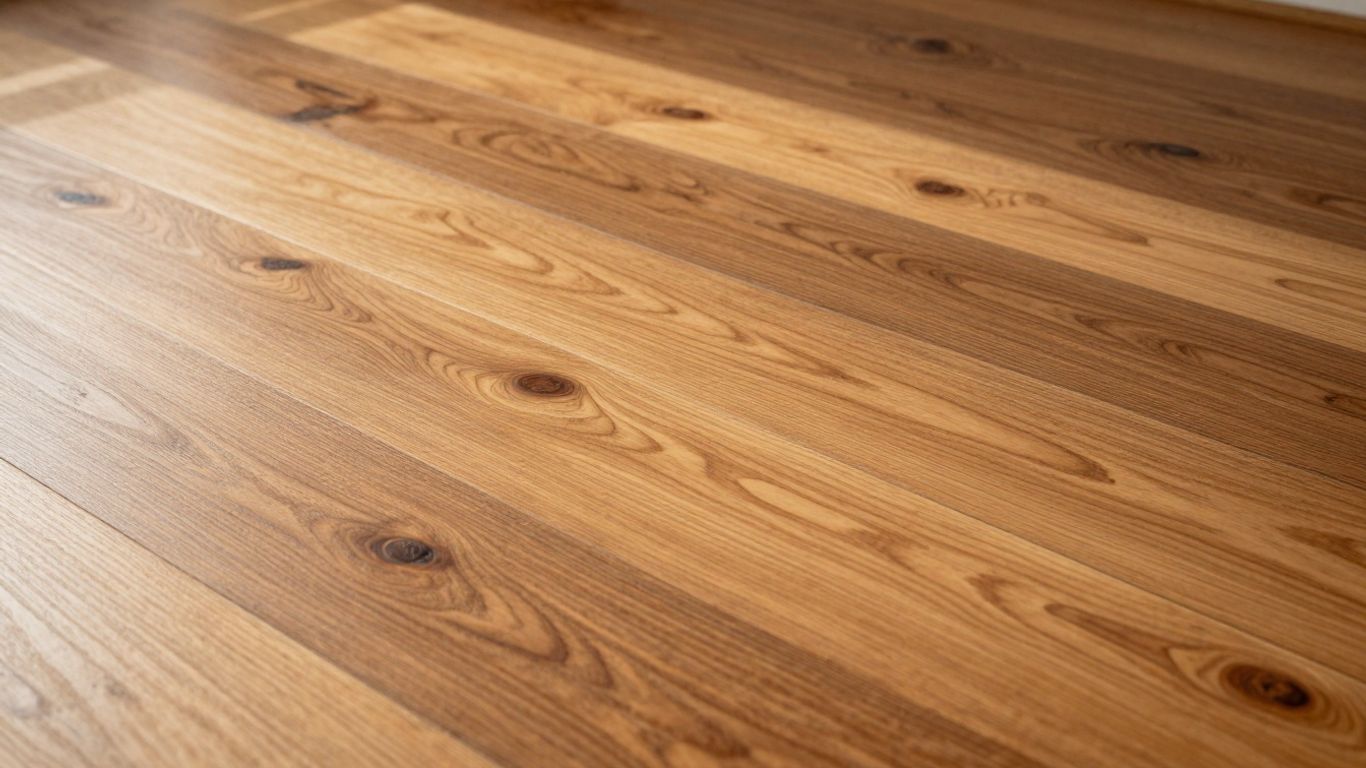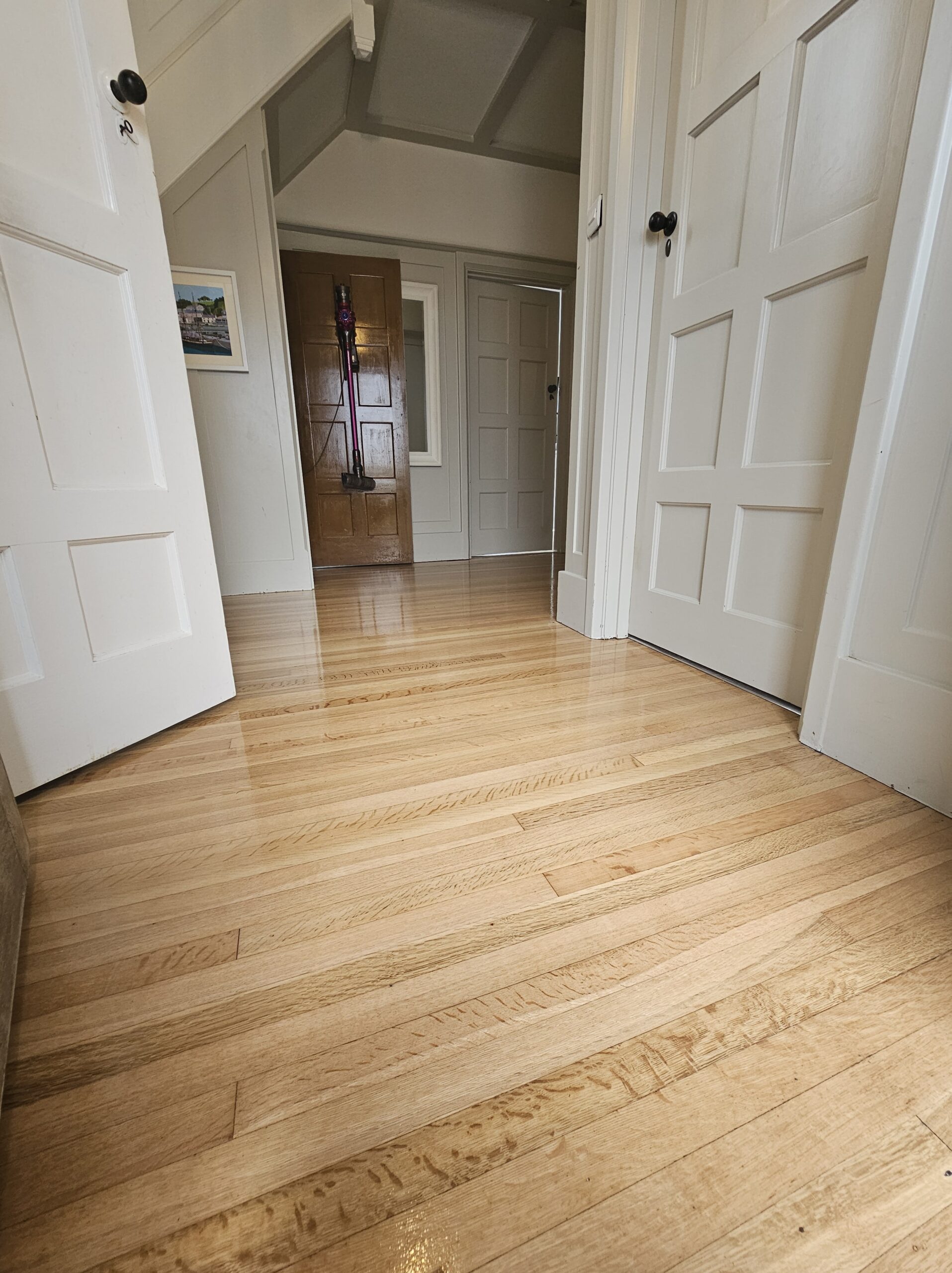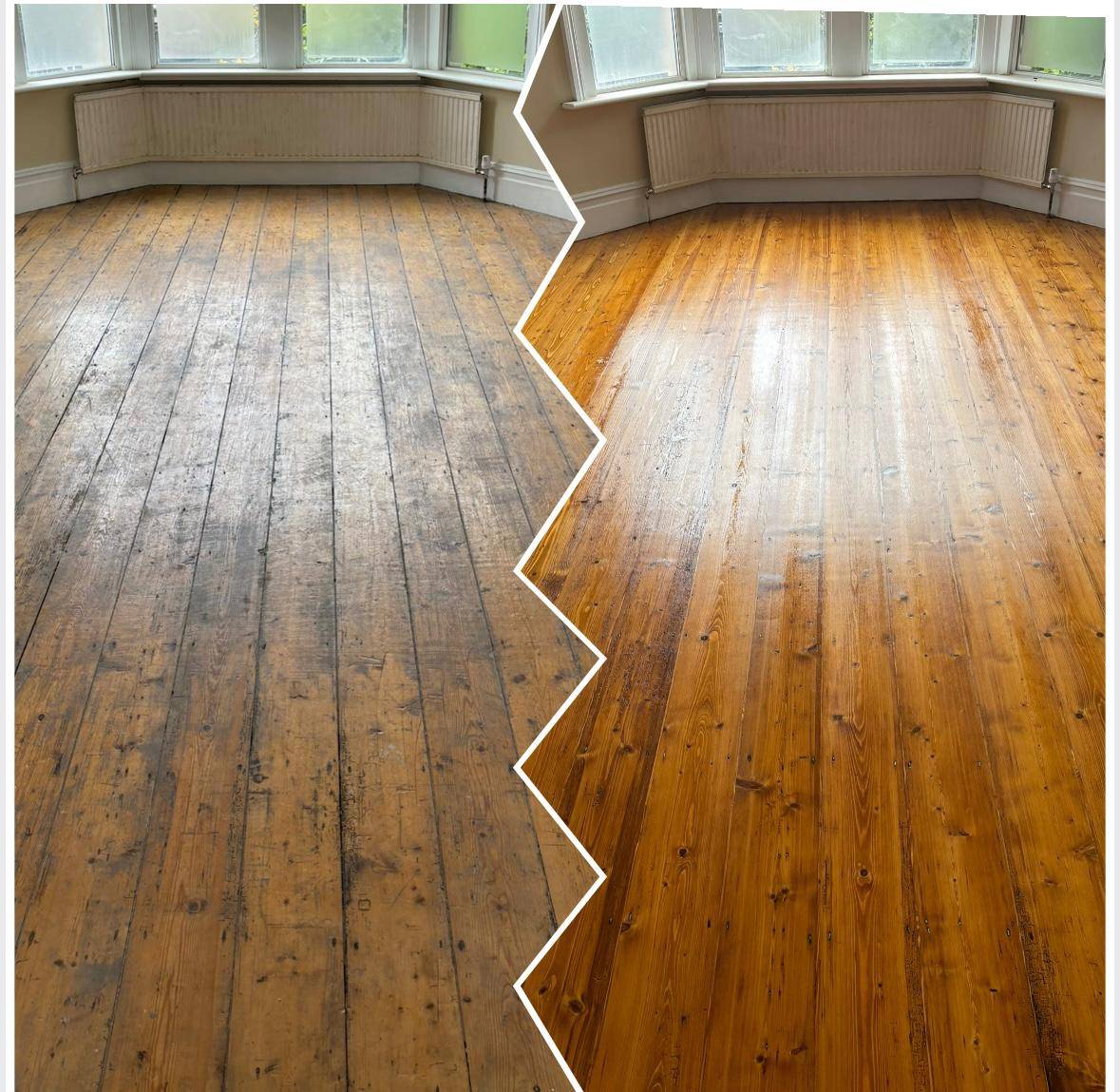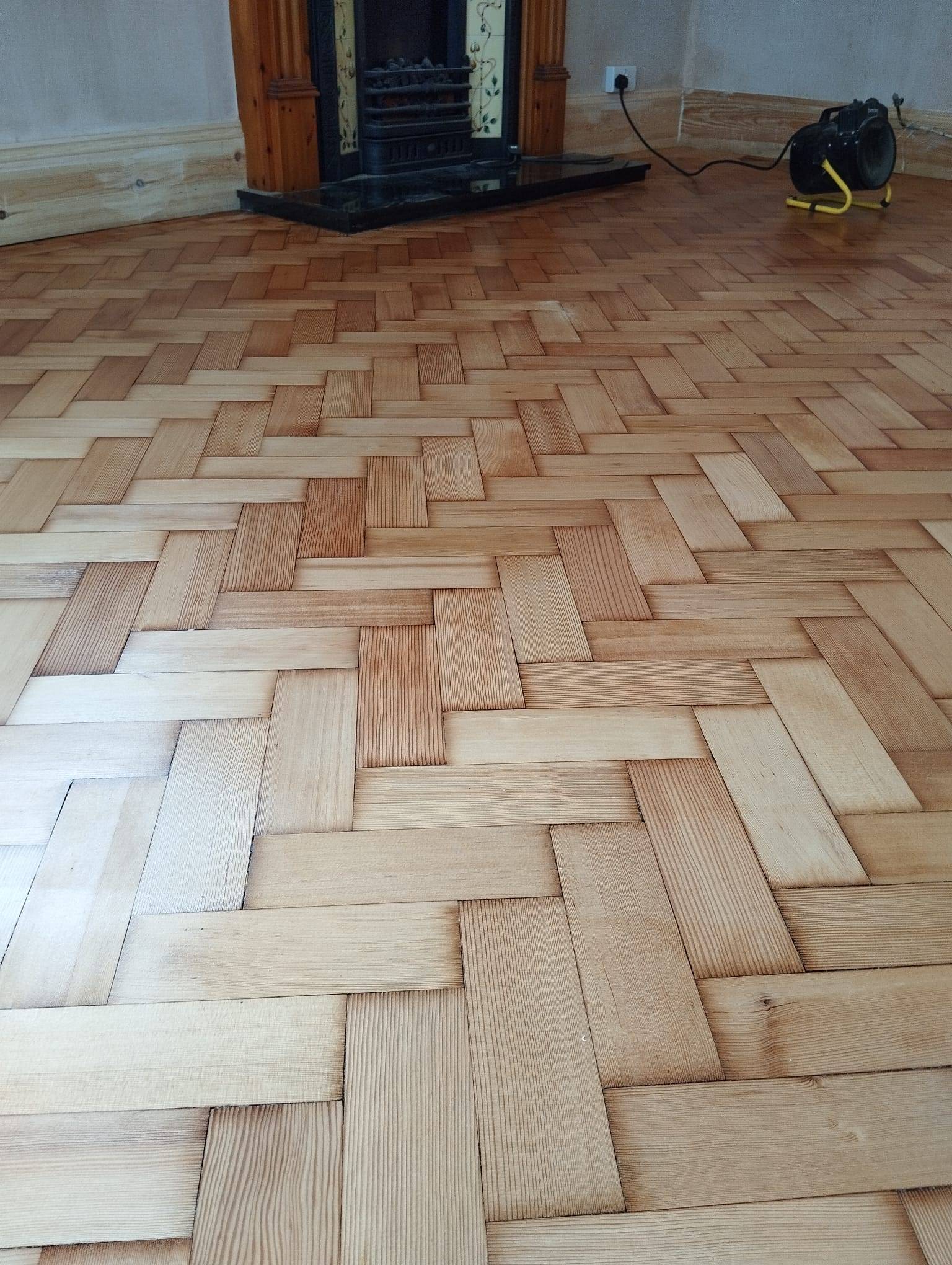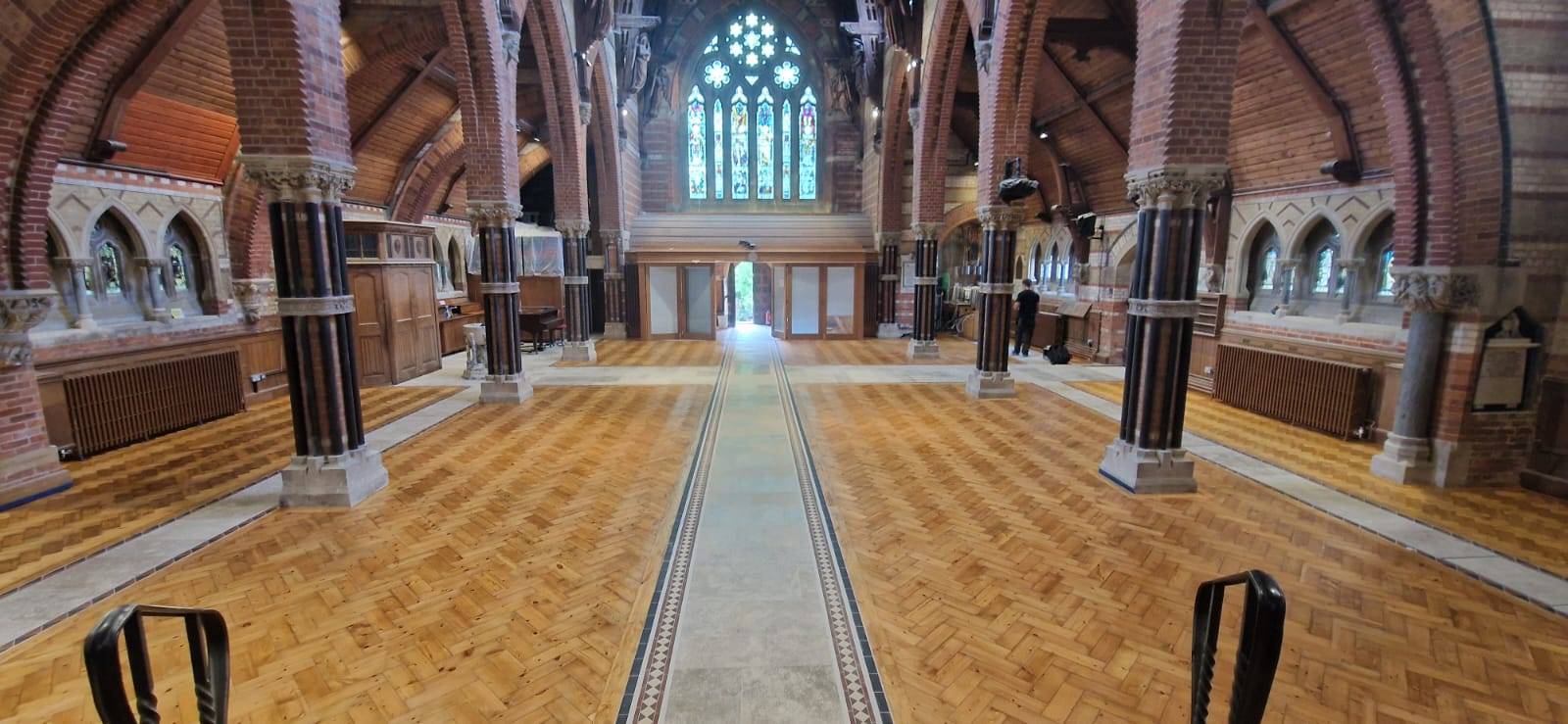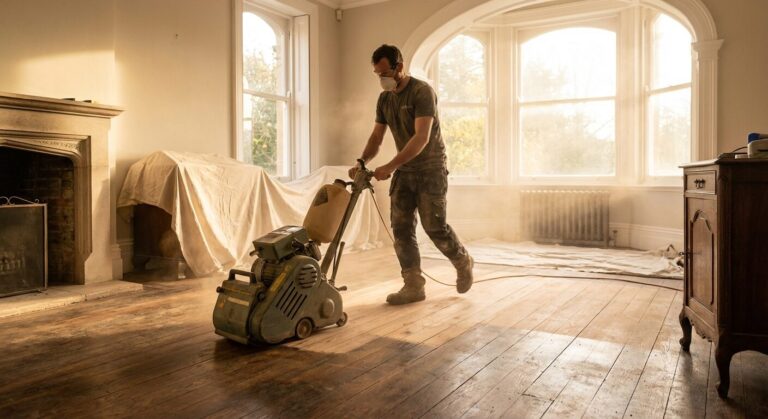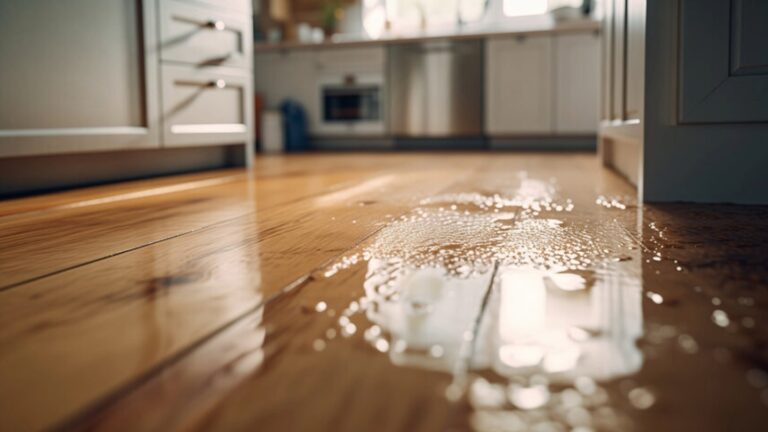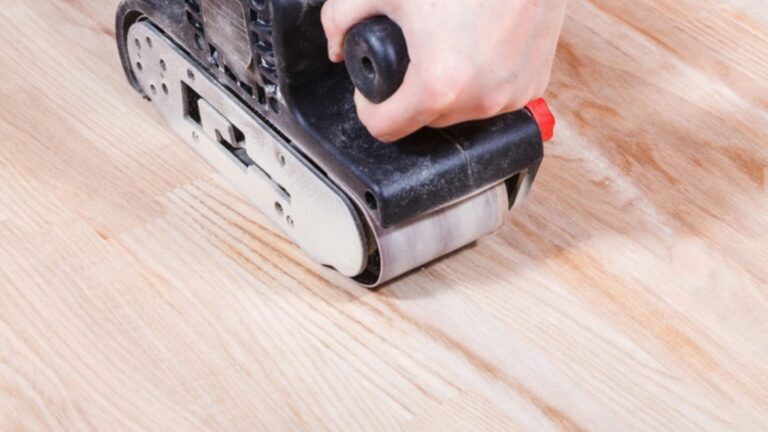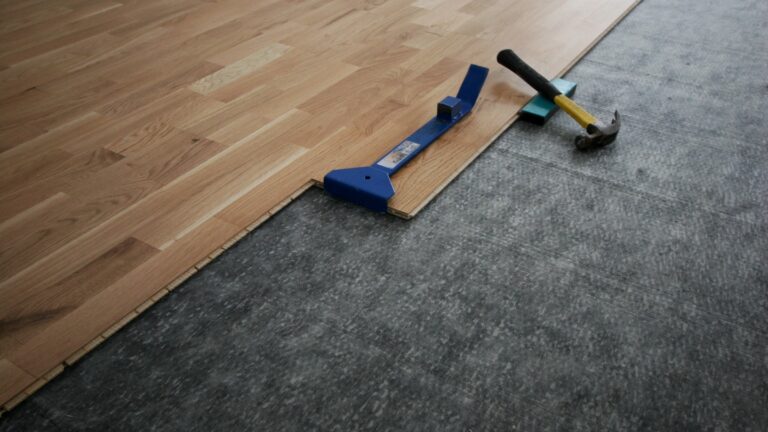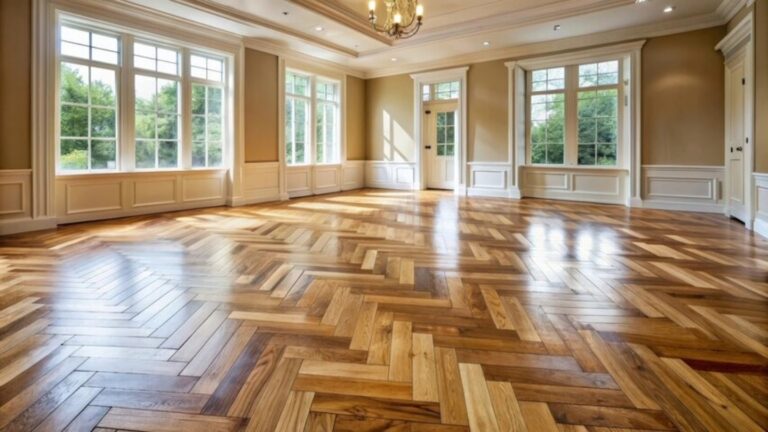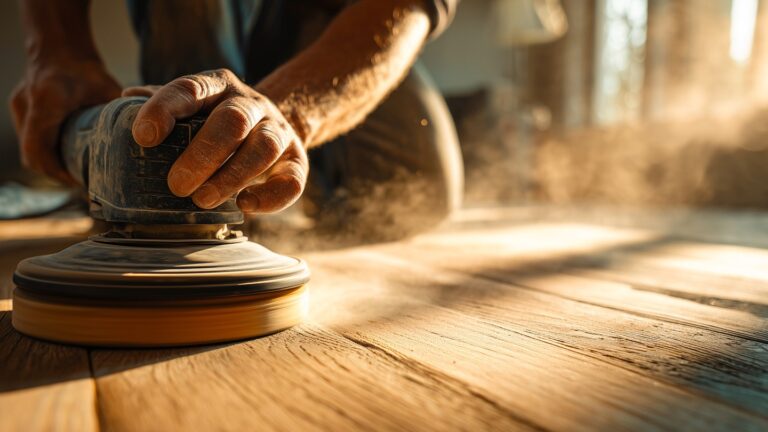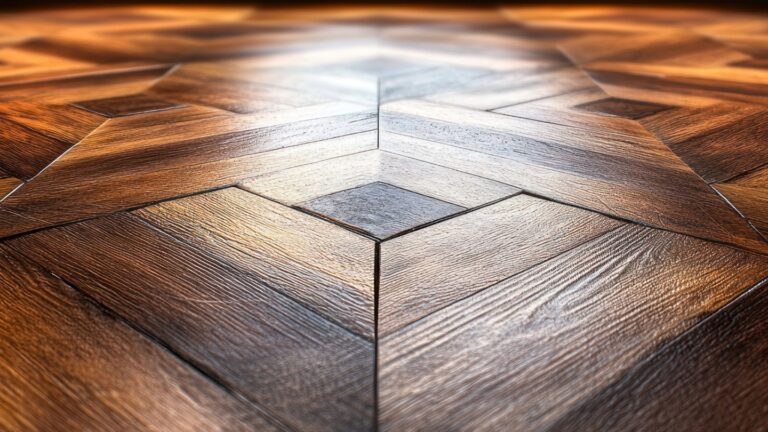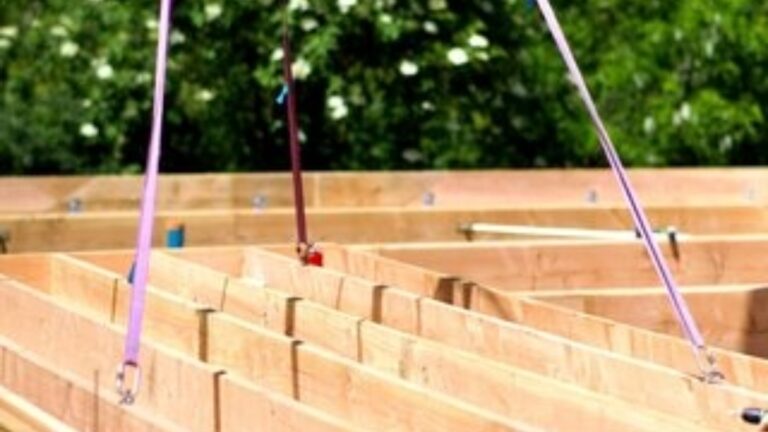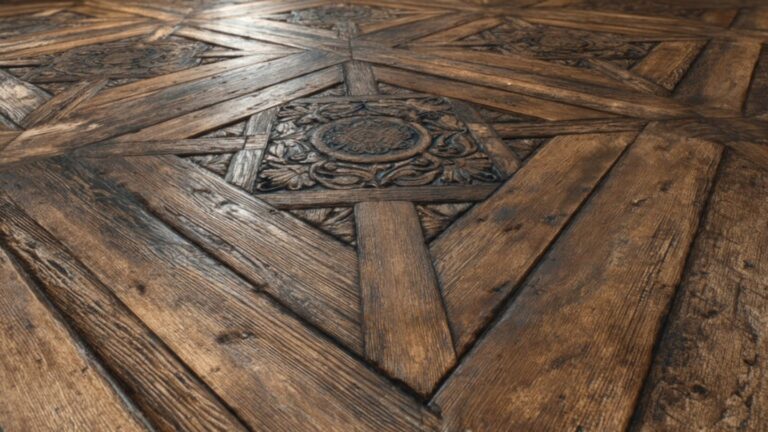Are you looking to redefine your home’s aesthetic while maintaining an eco-conscious lifestyle? Choosing the right finish for wood floors might seem trivial, but it’s a crucial step in crafting a truly sustainable home. Eco-friendly wood floor finishes, such as natural oils and water-based urethane, are not just about enhancing beauty. They play a vital role in reducing your home’s carbon footprint. Explore the array of non-toxic and low-VOC options available to strike that perfect balance between sustainability and style.
Exploring Eco-Friendly Wood Floor Finishes
Choosing eco-friendly wood floor finishes is crucial for those aiming to create sustainable homes. These finishes significantly reduce the ecological footprint by utilising materials that minimise environmental impact. They not only protect the wood but also enhance its natural beauty and provide durability. The choice of finish can influence indoor air quality due to the presence of volatile organic compounds (VOCs). Lowering VOC emissions is vital for healthier living environments, making eco-friendly options more desirable. By selecting finishes that are non-toxic and biodegradable, homeowners can contribute to a safer planet.
A range of eco-friendly wood floor finishes is available, each with unique benefits. Natural oils penetrate the wood deeply, nourishing and protecting it from within. Water-based urethanes are popular for their clear, durable finish and minimal environmental impact. Plant-based solutions derived from renewable resources offer both aesthetic appeal and sustainable credentials. These finishes are designed to be low-VOC, ensuring they are safe for both the environment and inhabitants. When selecting a finish, consider its impact on both the living space and the broader ecological system.
- Natural oils
- Water-based urethanes
- Plant-based solutions
- Wax blends
- Soy-based sealants
Benefits of Low-VOC Wood Finishes
Volatile Organic Compounds (VOCs) are chemicals that easily vaporise at room temperature, contributing to indoor air pollution. Reducing VOCs is beneficial because they can cause health issues, such as headaches, respiratory problems, and other long-term effects. Moreover, VOCs contribute to environmental pollution and smog formation. Opting for low-VOC wood finishes minimises these risks, making them an environmentally responsible choice for homeowners who prioritise health and sustainability.
Low-VOC wood finishes play a pivotal role in enhancing indoor air quality by releasing fewer pollutants into the air. These finishes are formulated to emit minimal odours and toxins, creating safer living spaces, which is especially important for households with children or individuals with allergies or respiratory conditions. By choosing non-toxic floor sealers, homeowners can enjoy peace of mind knowing their flooring solutions align with healthy lifestyle choices.
Beyond health and environmental benefits, low-VOC finishes offer remarkable durability and aesthetic adaptability. They are designed to endure wear and tear, maintaining the wood’s appearance over time without compromising on style. The availability of these finishes in various tones and textures allows for personalised design, ensuring that aesthetic preferences are met while adhering to eco-friendly standards.
| Benefit | Description |
|---|---|
| Health Safety | Minimises harmful emissions, improving indoor air quality and reducing health risks. |
| Durability | Provides long-lasting protection, maintaining the wood’s integrity and appearance. |
| Aesthetic Variety | Offers a wide range of finishes that suit diverse stylistic preferences. |
Natural Oil and Wax Treatments for Wood Floors

Natural oil and wax treatments offer an excellent method for enhancing the natural beauty of wood floors while ensuring their protection. These finishes penetrate deeply into the wood, nourishing it from the inside and highlighting its organic grain patterns. Natural oils, such as linseed and tung oil, provide a warm, rich tone to the wood, while waxes create a subtle sheen that enhances the floor’s appearance without overpowering its inherent characteristics. The combination of these treatments forms a durable barrier that guards against wear and tear, making them an attractive choice for maintaining wood floors.
From an environmental perspective, natural oil and wax treatments stand out as eco-friendly options. Derived from renewable resources, these products are typically biodegradable, reducing their impact on the environment. They do not emit harmful volatile organic compounds (VOCs), contributing to safer indoor air quality. This makes them a preferred choice for homeowners seeking sustainable floor maintenance solutions. By opting for these treatments, individuals can enjoy both the aesthetic and protective benefits they offer while remaining committed to environmental responsibility.
- Enhances wood’s natural beauty
- Provides a durable, protective finish
- Derived from renewable resources
- Biodegradable and low-VOC
Water-Based Urethanes: A Sustainable Choice
Water-based urethanes stand out as an environmentally safe wood coating due to their significantly reduced environmental impact compared to solvent-based alternatives. How do water-based urethanes differ from solvent-based options in terms of environmental impact? Water-based urethanes emit fewer volatile organic compounds (VOCs), resulting in lower levels of air pollution and a healthier indoor environment. This reduction in VOC emissions makes them a preferable choice for homeowners concerned with sustainability and air quality. Additionally, water-based formulations dry quicker and require fewer harsh chemicals during application and cleanup, further minimising their ecological footprint.
What are the benefits of choosing water-based urethanes for wood floors? These finishes offer a clear, durable coating that effectively protects wood surfaces from wear and tear while maintaining the natural beauty of the wood. The application process is straightforward, with water-based urethanes being easier to handle and clean up, making them a practical option for both DIY enthusiasts and professionals. Their long-lasting performance ensures that floors remain attractive and resilient, contributing to the longevity of the flooring and reducing the need for frequent refinishing. By choosing water-based urethanes, homeowners can enjoy durable, aesthetically pleasing floors while supporting a more sustainable home environment.
Certification and Labelling: Ensuring Eco-Friendly Choices
Certifications play a pivotal role in eco-friendly home renovations by ensuring that wood floor finishes are sourced and produced sustainably. What is the significance of certifications like FSC and SFI in sustainable wood flooring? These certifications, such as the Forest Stewardship Council (FSC) and the Sustainable Forestry Initiative (SFI), guarantee that wood products come from responsibly managed forests. This means they adhere to stringent environmental, social, and economic standards, promoting sustainable forestry practices. For consumers, these labels offer assurance that the products they select contribute to preserving forest ecosystems and reducing the ecological footprint of their homes. By choosing certified products, homeowners are not only enhancing their living spaces but also supporting global efforts towards sustainability.
- FSC (Forest Stewardship Council): Ensures wood is sourced from responsibly managed forests, balancing environmental, social, and economic interests.
- SFI (Sustainable Forestry Initiative): Focuses on sustainable forest management in North America, promoting biodiversity and forest health.
- PEFC (Programme for the Endorsement of Forest Certification): Provides a framework for sustainable forest management globally, ensuring ethical sourcing of wood materials.
Choosing the Right Eco-Friendly Finish for Your Home
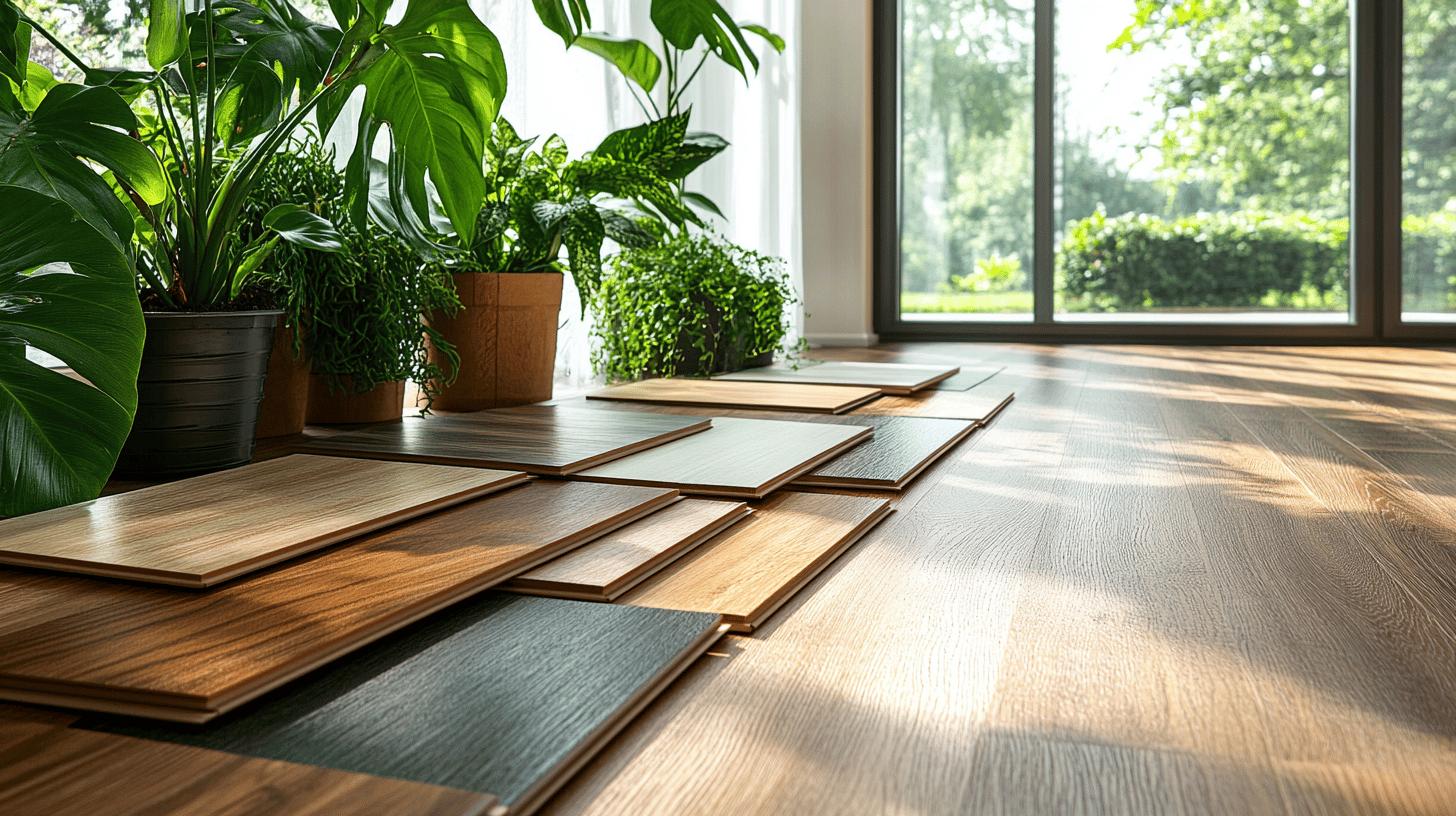
Selecting the most suitable eco-friendly wood floor finish involves careful consideration of several factors. What factors are crucial when choosing a wood floor finish? Primarily, the intended use of the room plays a significant role. For example, high-traffic areas require more durable finishes, while rooms prioritising aesthetic appeal might benefit from oils or waxes that highlight the wood’s natural beauty. Another essential factor is the desired aesthetic outcome. Some finishes enhance the grain and colour, while others provide a muted, protective layer. Lastly, evaluating the environmental impact of the materials used is vital. Opting for finishes with low volatile organic compounds (VOCs) ensures a healthier indoor environment and aligns with sustainable home-building practices.
Factors to Consider
What key factors should be evaluated when selecting an eco-conscious flooring solution? Durability is paramount, especially in areas subjected to frequent use. The finish should withstand wear and tear without compromising the wood’s integrity. Aesthetics are equally important; the finish should complement the room’s design while preserving the wood’s natural elegance. Environmental impact cannot be overlooked. Choosing sustainable construction materials and finishes with low environmental footprints supports eco-friendly living. Homeowners should seek finishes that are biodegradable, non-toxic, and derived from renewable resources to ensure their flooring choices contribute positively to the environment.
Professional Guidance
Why is it beneficial to consult with professionals like Ryan’s Restoration when selecting a wood floor finish? Professional guidance is invaluable in navigating the wide array of eco-friendly options available. Experts possess in-depth knowledge of products and can provide tailored recommendations based on specific needs and preferences. Ryan’s Restoration is renowned for its expertise in eco-conscious flooring solutions, offering personalised advice that considers both the practical and aesthetic requirements of a home. Engaging with such professionals ensures that homeowners receive high-quality service and make informed choices that enhance the sustainability and beauty of their living spaces.
Final Words
Choosing eco-friendly wood floor finishes significantly contributes to sustainable home design by reducing ecological footprints.
With options such as natural oils, water-based urethanes, and plant-based solutions, these finishes not only support environmental responsibility but also offer durability and aesthetic appeal. Low-VOC finishes further improve indoor air quality, promoting a healthier home environment while ensuring durability. Natural oil and wax treatments enhance natural beauty and offer eco-friendly maintenance, while water-based urethanes provide a sustainable and high-performance finish.
Certifications like FSC and SFI guarantee that wood products are sourced sustainably. Making informed choices ensures responsibility towards the environment. Engaging a professional, such as Ryan’s Restoration, simplifies selecting the perfect finish tailored to your needs. Eco-friendly wood floor finishes offer a durable, aesthetically pleasing option that aligns with sustainable living principles.
FAQ
What is the most sustainable wood finish?
The most sustainable wood finishes include natural oils, water-based urethanes, and plant-based solutions. These finishes are eco-friendly, low-VOC, and non-toxic, offering durability and aesthetic appeal while reducing environmental impact.
What is the most eco-friendly hardwood flooring?
Eco-friendly hardwood flooring options include sustainably sourced woods certified by organisations like FSC or SFI. These ensure that the wood is harvested from responsibly managed forests, minimising ecological impact.
What is the most environmentally friendly flooring option?
The most environmentally friendly flooring options include reclaimed wood, bamboo, and cork. These materials are sustainable, renewable, and often biodegradable, making them excellent choices for eco-conscious homeowners.
What is the most resilient floor finish?
Resilient floor finishes, such as water-based urethanes and plant-based oils, offer excellent protection and durability for wood floors. They provide robust wear resistance and ease of maintenance, enhancing longevity.
What are the best eco-friendly wood floor finish options for sustainable homes?
The best eco-friendly wood floor finishes include natural oils, water-based urethanes, shellac, natural wax, and soy-based stains. These finishes offer sustainability and non-toxicity and contribute to healthier living environments.
What eco-friendly flooring options are available in the UK?
Eco-friendly flooring options in the UK include reclaimed wood, bamboo, cork, linoleum, and sustainable hardwoods. These options are renewable, biodegradable, and have a lower environmental footprint compared to traditional materials.
Are there sustainable wood flooring options in the UK?
Yes, sustainable wood flooring options in the UK include certified hardwoods sourced from responsibly managed forests. These certifications, such as FSC and SFI, ensure that the wood is harvested sustainably and ethically.
Is there eco-friendly vinyl flooring available in the UK?
Eco-friendly vinyl flooring options in the UK include products made from recycled materials and those with reduced VOC emissions. These options provide a more sustainable choice compared to traditional vinyl flooring.
Are there non-toxic floor paint options in the UK?
Non-toxic floor paints in the UK include water-based paints with low or zero VOC content. These paints are safer for indoor air quality, reducing harmful emissions and ensuring a healthier home environment.
What are some eco-friendly kitchen flooring options available in the UK?
Eco-friendly kitchen flooring options in the UK include cork, bamboo, reclaimed wood, and linoleum. These materials are sustainable, durable, and well-suited for the demands of kitchen environments.
